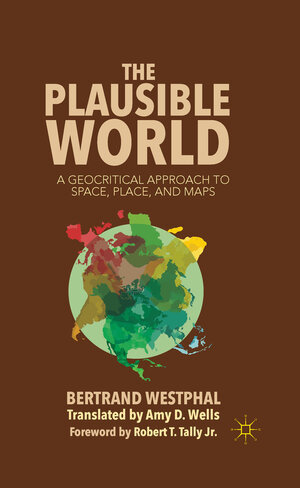
"Admirably learned and wide-ranging in its exempla, Westphal's geocritical study de-centers and redraws the most cherished mappings of Occidental modernity, opening up place and space to postmodern incursions. Its chronotopic richness and theoretical adventurousness will repay careful scrutiny by contemporary cartographers of past, plural, and plausible worlds.„ - David H. J. Larmour, Paul Whitfield Horn Professor of Classics, Texas Tech University, USA, and author of The Sites of Rome: Time, Space, Memory
“A vast rhizomatic and immensely learned romp through the literary spaces of the last three thousand years. Wells's translation of Westphal's The Plausible World will put geocriticism firmly on the map.„ - Paul Allen Miller, Carolina Distinguished Professor of Classics and Comparative Literature, University of South Carolina, USA
“The Plausible World digs deep into the archives of the literary and cartographic arts in order to show how maps are shaped by stories. In so doing, it takes us on a sometimes meandering, often playful, and always gripping voyage through the spatial history of the world, emphasizing mankind's fiction-fueled quest to know (and master) the smooth New Worlds that seem always to beckon to us from just beyond the horizon of that striated center we call home." - Eric Prieto, Professor of French, University of California, Santa Barbara, USA, and author of Literature, Geography, and the Postmodern Poetics of Place



